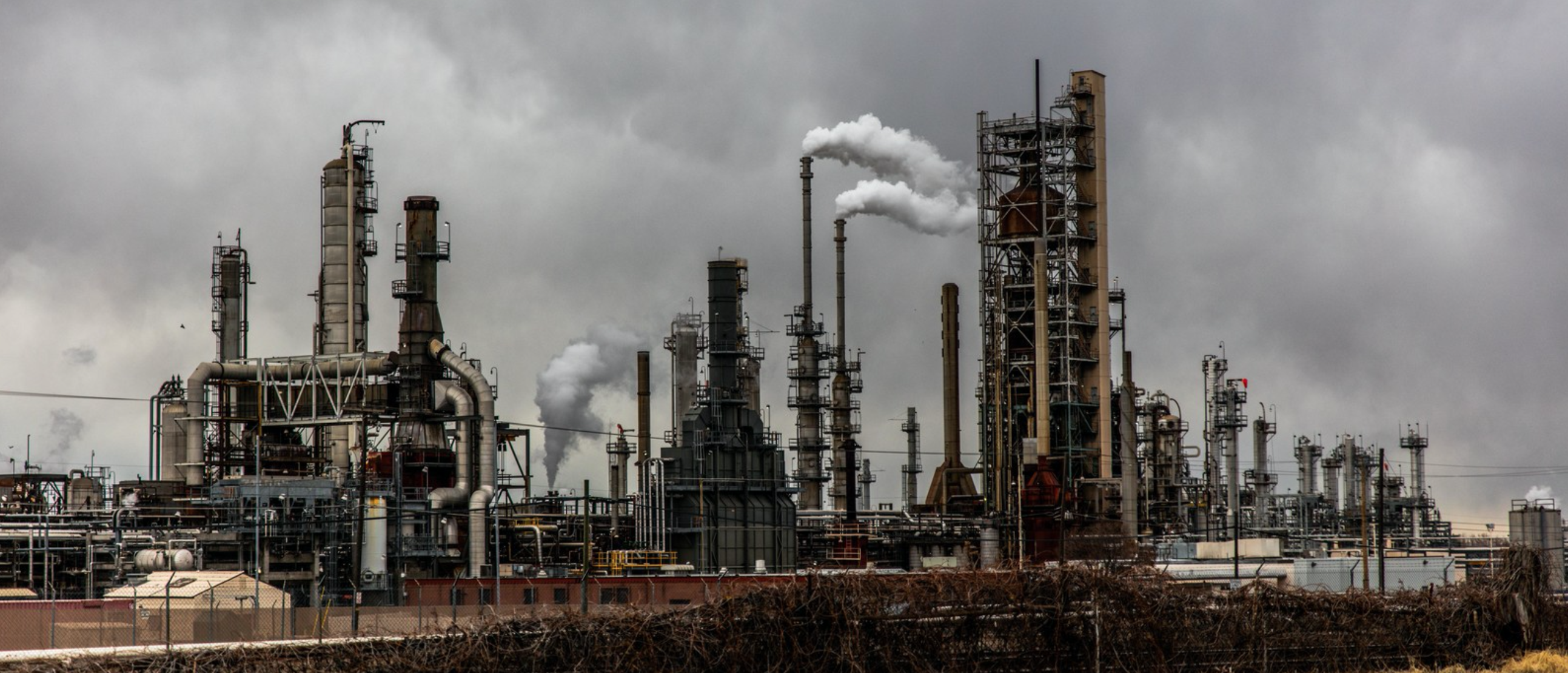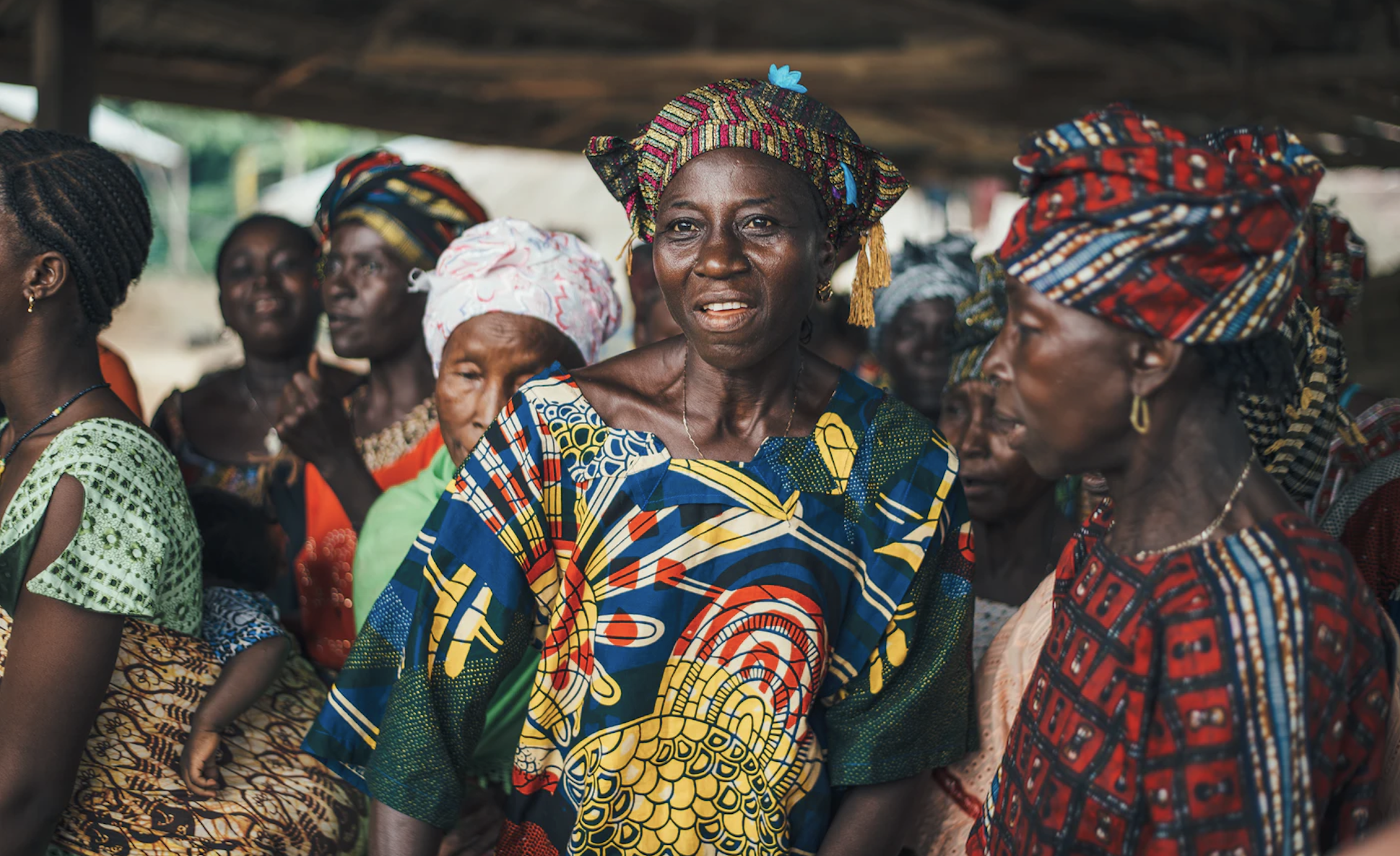By Steve Kayizzi-Mugerwa, Adjunct Professor, Edmund A. Walsh School of Foreign Service, Georgetown University.
- This opinion piece is part of a series of articles commissioned by UNIDO's Department of Policy Research and Statistics. The views expressed in this article are those of the author based on his experience and on prior research and do not necessarily reflect the views of UNIDO (read more).
Background
This opinion piece addresses the anxieties that have arisen in resource-rich African countries in response to the strengthening of the global decarbonization agenda in the wake of COVID-19. The closure of industries (albeit only temporarily) across continents at the height of the COVID-19 pandemic and the concomitant reduction in greenhouse gas emissions for the first time in recorded history have had a powerful demonstration effect on global thinking about environmental and climate change issues, and have more determinedly nudged decarbonization strategies forward than ever before. These developments raise serious questions about the paths to development that low-income and emerging economies should pursue as markets respond to the realities of “Net Zero”. For decades, development has unequivocally been pursued through the deployment of human and natural resources to promote industrialization, a thesis that is now being challenged by the green economy approach.
Yet, as is often the case when it comes to changes in global development sentiment, low-income African countries have played only a cursory role in influencing the “Net Zero” agenda, the internationally agreed upon goal to mitigate global warming by 2050. Although Africa as a continent contributes less than 4 per cent (i.e. 1.43 billion tonnes) to total global greenhouse gas (GHG) emissions of 36.44 billion tonnes (according to 2019 data), given its low level of industrialization, the estimated mitigation and adaptation costs for African countries are expected to greatly exceed the continental GDP of USD 2.2 trillion (in 2020). In the post-COVID-19 push for green growth, the “gradualism” that once informed some of the earlier thinking on phasing out hydrocarbons and other polluting industries to allow low-income countries to “catch up” seems to have been abandoned.
While richer countries and specialized agencies are now calling for the frontloading of “Net Zero”, including raising the Nationally Determined Contributions to GHG reduction, there is little or no scenario analysis with respect to what a deindustrialized African economy (in the sense of eliminating industrial activities, i.e. heavy industry that has negative implications for “Net Zero”) portends for the welfare of its population as well as its SDG commitments – especially job creation and the goal of lifting people out of poverty.
We examine the asymmetric impacts of the decarbonization agenda on resource-rich African countries drawing on examples from Uganda, which is working tirelessly to bring its crude oil (discovered in the early 2000s) to the market in the face of a projected reduction in global demand for hydrocarbons; and Zambia, a key copper exporter (8th largest globally), which is currently enjoying brighter prospects as a result of copper’s emergence as a pillar of the electric car industry. Both Uganda and Zambia view their natural resources as pathways to sustainable industrialization, although COVID-19 and its aftermath have implied serious and multifaceted discontinuities.
“Net Zero” anxiety among Africa’s resource-rich countries
Global concerns over the environmental and climate change impacts of mining activities and the production of hydrocarbons have elicited numerous policy responses. They include the World Bank’s concept of climate-smart mining (incorporating climate mitigation and adaptation, decreasing material impacts, and creating new market opportunities) and the related issue of “decoupling” natural resource use and environmental sustainability by reducing global material extraction (by at least 25 per cent) which has been promoted, among a broader set of interventions, by the United Nations Environmental Programme (UNEP). Both concepts have principally been published as policy guidance documents and lack tangible implementation strategies.
While the future seems bright for countries that produce minerals such as copper and cobalt which feed directly into the green economy, the future looks outright gloomy for those producing hydrocarbons and coal. Hence, countries such as Uganda, Kenya and Mozambique, once elated about the discovery of oil and gas on their territories and investing several billion dollars in their development, are now worried by the very real prospect of “stranded assets”, as once enthusiastic investors, including oil majors, are backtracking on their plans under post-COVID pressure from emboldened domestic lobby groups. In Uganda, part of the plan is to use the oil sector as a catalyst for industrialization and economic modernization through the establishment of energy and petrochemical industries and the associated infrastructure, with links to both the agriculture (fertilizer) and manufacturing (industrial chemicals, paints, plastics and cooking gas) sectors.
Curtailing oil production and mining activities without compensatory long-term financing would be catastrophic for many African countries, even within a 10-year adjustment window. For example, South Sudan, one of the last countries in Africa to achieve independence (2011) and reputedly one of the world’s lowest contributors to GHG due to its lack of large industries and modern agriculture, depends almost entirely on oil revenue (90 per cent) to make ends meet. Likewise, oil generates the bulk of its foreign exchange and contributes to the building of the infrastructure required to link regions and generate spatial economies across the vast country.
Not far from South Sudan lies Somalia, a country that is gradually returning to normalcy after decades of civil war. It, too, contributes little to GHG emissions, but might not be able to develop its offshore oil and gas finds (nor the synergies these would engender for the rest of the economy) if the “Net Zero” agenda is pushed to its logical conclusion. Under the ‘normal’ scenario, hydrocarbons would have been bound to provide a ready source of development money in both countries, while alternative greener scenarios largely remain on the drawing board. The push to eliminate GHG has so far been more spirited than that of helping countries cope with the necessary adjustments to meet the demands of “Net Zero.”
Not all countries in Africa will be losers, however. On the Copperbelt, countries such as Zambia and the DRC that have experienced low growth in recent years (including potential debt distress), have received a new lease of economic life as copper prices have recently witnessed an unprecedented upsurge, based on projections of strong global demand for electric cars, which require copper wiring. This notwithstanding, mining is an environmentally destabilizing operation locally, far from the climate-smart business advocated by the World Bank. Ironically, the intensive search for more copper deposits will consume even more energy and water, raising the same concerns over climate change as those of hydrocarbon operations. There is an undeniable path dependence in Africa’s resource exploitation, which will take decades to change and even longer to turn into profit.
Oil and copper post-COVID-19: trading places?
Africa’s relationship to its rich natural resources might never be the same again post-COVID-19, and in the wake of the global decarbonization agenda, as shown by the region’s oil, gas and copper prospects. During the past 20 years or so, prior to the outbreak of COVID-19 in 2020, oil and gas explorations contributed to Africa’s economic optimism and sense of self-determination, i.e. “Africa rising.” The industrialization of Africa, notably of low-income sub-Saharan Africa, was suddenly no longer considered a remote prospect. In the early 2000s, no African country was actively being discouraged by the international community from developing its oil and gas assets due to climate change concerns. This change in approach is thus quite drastic.
Oil and gas deposits were discovered in most corners of the African continent, from coastal countries, such as Cameroon and Kenya, to hinterland economies including Uganda and Malawi, owing to the activities of small but adamant oil prospectors such as Tullow Plc (UK), Hardman Resources Ltd (Australia) and Lundin Energy (Sweden). Not entangled in the old geopolitical trysts of post-colonial Africa and expressly tied to the continent’s globalization push, they went where their search for “value” led them.
Although there were strong local lobbies in African countries advocating the rights of local communities, with an emphasis on ensuring that they receive a fair share of the oil and gas profits, as well as with an emphasis on the environment (Kayizzi-Mugerwa, 2020), none were strong enough to stop the drilling operations altogether, even in seemingly pristine parts of the countries. Consequently, in a matter of two decades, starting from the late 1990s, the African Savannah—except for established producers such as Angola and Nigeria—had become a giant region for oil and gas prospecting and drilling. Even Malawi, Africa’s classical agrarian outpost, had discovered oil and gas near Lake Malawi and was awaiting investor interest to move the process forward. All of this happened well before the outbreak of COVID-19 in 2020.
Since the pandemic, the mood surrounding Africa’s future oil houses has been much less ebullient. The trailblazing oil miners mentioned above have retreated from several African projects, although some staggering—and disputed—deals have been concluded, notably French major Total’s plan to develop a USD 3 billion Uganda-Tanzania oil pipeline, traversing some 1,445 kms. Still, few could have predicted that Africa would experience such a sharp oil discontinuity only two decades after vast parts of Africa’s hinterland were opened to exploration, with local communities harbouring hopes of becoming the “new Middle East”.
On Africa’s Copperbelt, notably in Zambia and to some extent in the DRC, on the other hand, the situation has evolved quite differently. Pre-COVID-19, Zambia’s economic prospects had diminished perceptibly, with copper as an industrial metal roundly thought to be in secular decline; the situation in the DRC was only salvaged by relatively lower production costs.
Zambia had privatized its mines, but politicians and the population were discontented with the relatively few jobs created by the new owners of their national industry and the lower-than-expected revenue streams (Mwaba and Kayizzi-Mugerwa, forthcoming). While earlier projections of strong copper prices (in the 2010s) had sent the government on a borrowing spree of mainly Eurobond loans (of relatively short duration and high coupon rates), the country’s indebtedness had already become cumbersome by 2015, and the country was subsequently forced to enter a technical default, as it had failed to service some of its loans without yet declaring a full stop to regular repayments. The COVID-19 pandemic pushed Zambia over the edge, the country finally defaulting on all Eurobond coupons and subsequently embarking on negotiations with China. The authorities resisted approaching the International Monetary Fund (IMF) in the early phases of the COVID-19 pandemic, fearing its “remedy”. They decided that they could resolve the issues on their own with the assistance of a French investment bank in the role of adviser.
Although the post-COVID-19 impact has been detrimental for new oil and gas producers such as Uganda for the reasons discussed above, it has been surprisingly positive for copper and the Zambian economy. In the second year (2021) of the pandemic, Zambia’s prospects have improved markedly, given copper’s crucial role in the electric car revolution – indeed, copper is now being referred to without any irony as the “new oil”. Copper prices are skyrocketing compared to just a few years ago (now close to USD 10K per metric tonne, with projections of USD 15K per metric tonne in the medium term). Zambia’s leadership eventually found the courage to approach the IMF and to request assistance and discuss debt rescheduling with its creditors from a position of relative strength. The new Zambian government, which assumed office in September 2021, has pledged to prioritize the country’s mines, illustrating that COVID-19’s unintended consequences have had both negative and positive effects for Africa.
Policy responses and conclusion
Several African countries have been caught in a policy bind over the past couple of years. For example, should the Government of Uganda, having spent billions to develop the country’s oil assets in the Albertine Graben to the west of the capital Kampala, treating it as a springboard for eventual industrialization, simply walk away from these investments in the wake of “Net Zero”? Ugandan authorities are pushing ahead under the premise ‘where there is a will, there is a way’. One of the strategies Uganda has adopted is to involve several of its neighbours in the oil project, thereby reducing its risk exposure and creating a regional market for future petrol production. It is intent on extracting as much oil as possible before “Net Zero” kicks in in earnest.
Still, Uganda’s government must bear in mind that oil is in secular decline, and the country will have to start thinking about serious long-term alternatives to drive its future development. Uganda was once a copper producer and could reassess whether it could revive its once dynamic copper industry, using new technologies to revisit former practices and techniques and prospect for new mines. Given its temperate climate and lush environment, modern agriculture (bearing in mind that cows release a considerable amount of GHG), and tourism could represent serious alternatives to a deflated oil sector.
All things considered, Zambia and the DRC are bound to emerge as clear winners in the expanding green economy if they find ways to extract copper in an ecologically acceptable manner in line with the stringent regulations of “Net Zero”. A booming copper sector has never been a powerful enough engine of growth in either Zambia or the DRC. Besides creating white elephants on Zambia’s side of the Copperbelt, copper production has also been known to distort the country’s expenditure patterns, encouraging the development of a decidedly capital-intensive industrial development strategy with limited job creation. A new approach to managing booms in the emerging green economy will be necessary if the benefits are to be sustainable.
Among the questions that have arisen in mineral-rich African countries is who will compensate them for the serious fall-off in potential income from their oil and gas resources as they transition to a decarbonized future which the COVID-19 pandemic has helped to frontload? Is there enough copper (and other less polluting minerals) in the ground to unleash a cleaner extractive environment for Africa that can sustain its participation in the green economy? Is a return to agriculture, as proposed by some, a viable strategy for creating an alternative and greener approach to development in Africa? These questions and many more need to be addressed as Africa embraces the “Net Zero” agenda in coming decades.
Thus, while the COVID-19 pandemic has had serious socio-economic and demographic impacts on African countries (in terms of infections and deaths), the longer-term economic and structural effects of the shift in global production chains that the pandemic has caused and fortified, are bound to be much more significant for Africa’s future development than those witnessed over the past couple of years. If the “Net Zero” agenda becomes a stringent determinant of the global development path, it is worth considering which development vehicles have the capability of pushing African countries forward, including the shape industrialization and manufacturing, the foundations of earlier waves of global prosperity, should take on the continent.
- Note: It is now abundantly clear that the COVID-19 pandemic has had an impact on nearly all aspects of our lives and has caused us to rethink “business as usual”. As we adapt to the "new normal", appropriately channeled opportunities can help us improve the way we do business and the way we live. The United Nations Industrial Development Organization is preparing its latest flagship report, the Industrial Development Report 2022, which will provide a comprehensive assessment of the pandemic’s impact on global manufacturing and the prospects for the future of industrialization in a post-pandemic world. Scheduled to be launched on 1 December 2021, the report will make a key contribution to countries' national and international strategies for an inclusive, sustainable and resilient industrial recovery to build back better from the COVID-19 pandemic.
References
Kayizzi-Mugerwa, S. (2020) “Uganda’s nascent oil sector: revenue generation, investor-stakeholder alignment and public policy”, WIDER Working Paper, 2020/175, UNU-WIDER, United Nations University, Helsinki.
Mwaba, A. and Kayizzi-Mugerwa, S. (forthcoming) “Boosting Mineral Revenues in Zambia: Policy Options for a Sustainable Fiscal Regime”, Draft WIDER Working Paper, UNU-WIDER, United Nations University, Helsinki.












